Corruption plagues every facet of life in China
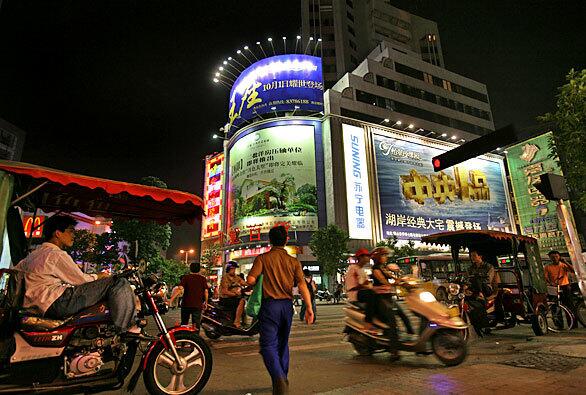
Foshan, in southern China, is home to 8.2 million people, one-fourth of them migrant workers. It is a place where a dizzying pace of change as growth and industry dominate. Throughout the country, the rapid economic growth has created a gold rush mentality. Without the strictures and the social safety network of Mao Tse-tungÂs rigid system, millions of people are seeking ways to prosper  legally or illegally. (Carolyn Cole / Los Angeles Times)
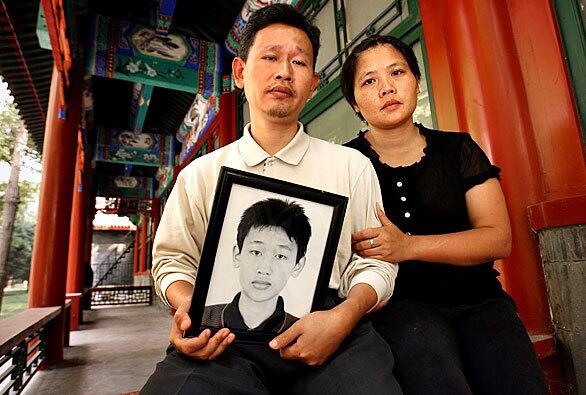
Liao Zusheng and Chen Guoying hold a portrait of their 15-year-old son, Liao Mengjun, who was killed at his public school in Foshan in July 2006. They believe the killers were teachers enraged over the complaints they had made about illegal fees and other corruption. They have come to Beijing seeking justice. (Carolyn Cole / Los Angeles Times)
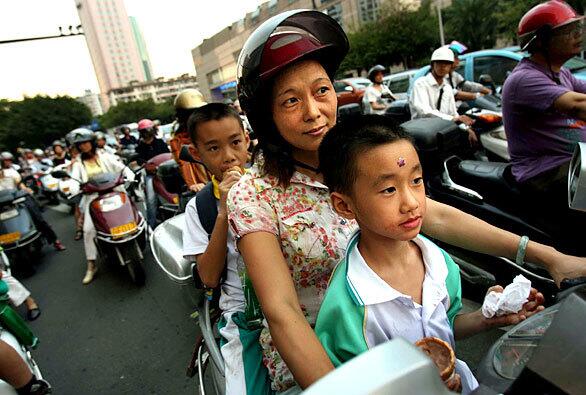
A woman drives her children to school on a scooter in Foshan. Getting their children into good schools can be a challenge for most Chinese parents, and some resort to bribing local education and school officials. Even in school, officiald extract unauthorized fees from parents, who also feel pressure to give cash envelopes to teachers whose subjects feature prominently in college entrance exams. (Carolyn Cole / Los Angeles Times)
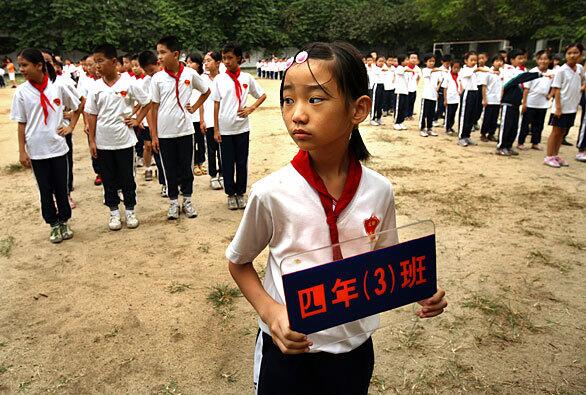
A young schoolgirl stands at attention during the morning formation at her public school in Foshan; the sign she holds says âGrade Four, Class No. 3.â âIf you go to the right school, the people you meet are of a better quality, so it pays off,â says one parent there. (Carolyn Cole / Los Angeles Times)
Advertisement
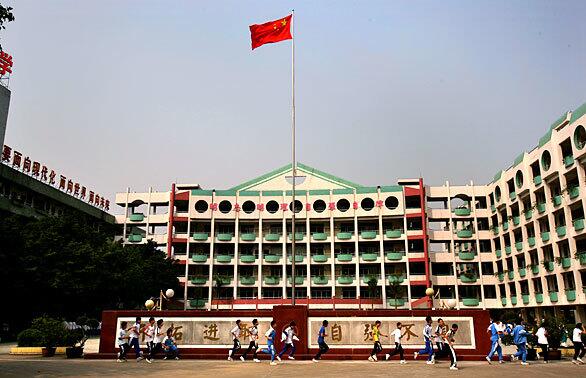
Huangqi Middle School, in Nanhai district, where witnesses say they saw 15-year-old Liao Mengjun chased and beaten. Later his body was found, having fallen several stories to the ground. When his parents saw him at the morgue, they found that his forehead had been bashed in. His right knee jutted through the skin. Both his arms had been broken. He had several stab wounds, internal injuries and a swollen foot. (Carolyn Cole / Los Angeles Times)
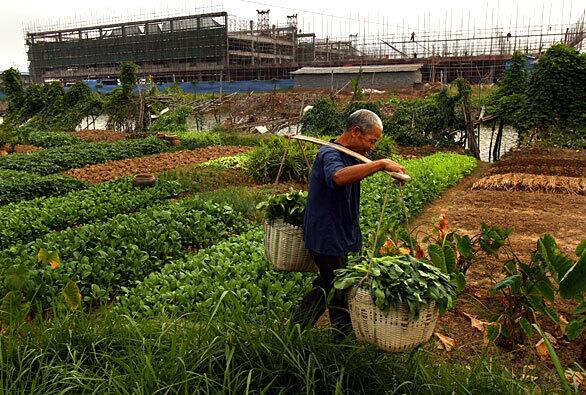
A farmer tends to his plot in Liantang, where the Ceramics International Trading Center is being built. The collectively owned farmland was sold by local government officials without fair compensation to the farmers. The money is allegedly often diverted from official village accounts to enrich corrupt government officials. (Carolyn Cole / Los Angeles Times)
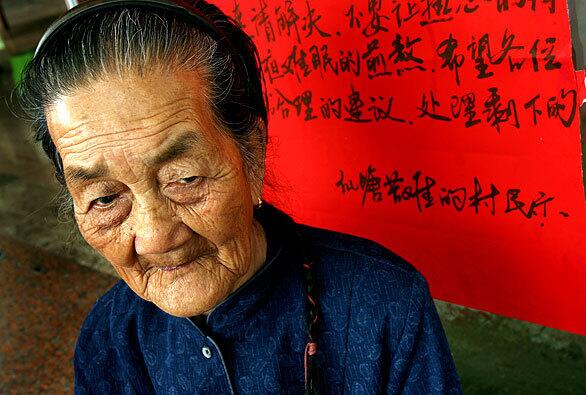
Ninety-year-old Cui Neng, a resident of Xiantang village in Foshan, says corrupt officials have embezzled millions of funds from village accounts. âI want to get my money back,â she said, âI only hope I can see justice before I die.â She and dozens of other villagers have been occupying government offices in a protest demanding their money be returned. (Carolyn Cole / Los Angeles Times)
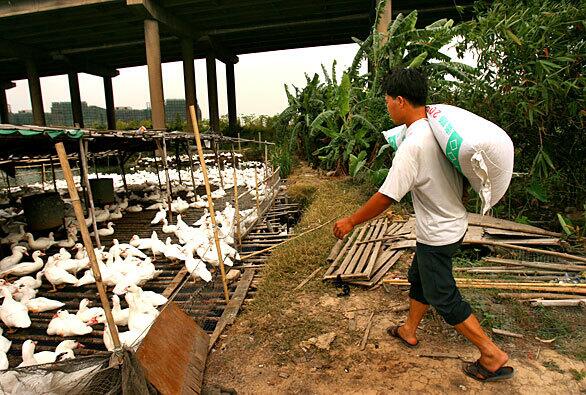
Chen Qixi, 38, takes care of his hundreds of ducks and fish on a small plot of land left in Liantang, where factories are sprouting constantly. Land is a source of much corruption in China, where collectively-owned farmlands are sold off by officials without adequate compensation to growers. (Carolyn Cole / Los Angeles Times)
Advertisement
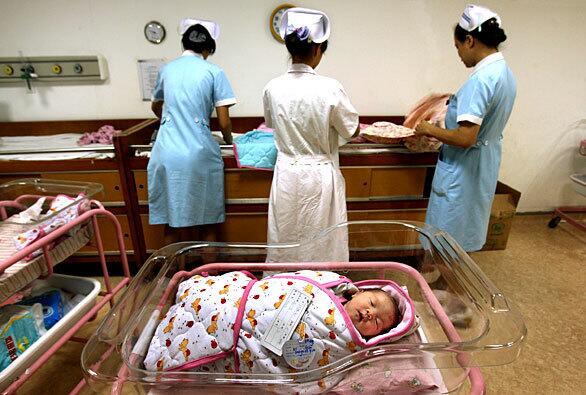
A newborn sleeps in the neonatal ward of a hospital in Foshan, where some families feel pressure to give monetary gifts to hospital staff to ensure better care. (Carolyn Cole / Los Angeles Times)
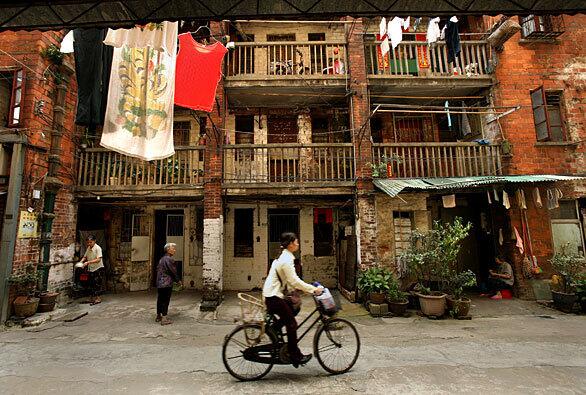
Amid rapid growth, there is squalor in Foshan. There are more than 2.3 million migrant workers in the city, working in factories that produce ceramics, furniture, toys and household appliances, many destined for Wal-Mart, K-Mart, Avon and Home Depot. (Carolyn Cole / Los Angeles Times)
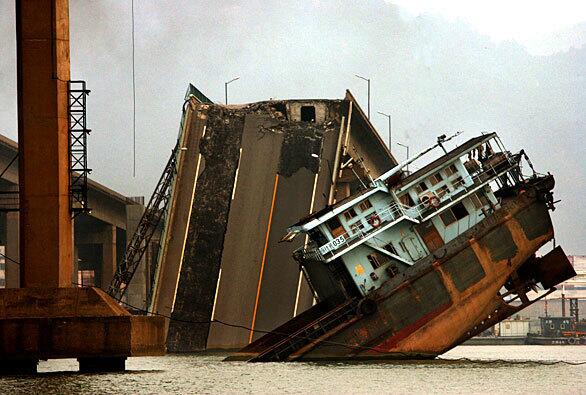
Foshanâs Jiujiang Bridge collapsed in 2007 after a barge ran into one of its pylons. Over the previous year, several houses along the bank had started collapsing as well. Authorities blamed geology and the barge captain. But locals say they suspect government officials took bribes for years from illegal dredges that worked night and day removing huge quantities of sand, a valuable commodity given the regionÂs booming construction market. At least 9 people were killed in the collapse. (Carolyn Cole / Los Angeles Times)
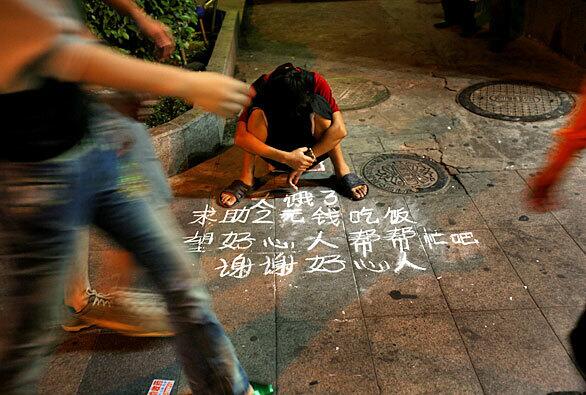
Despite the rapid development in Foshan, some still get left behind. A man begs for money on a downtown street; his note says, âIâm starving. Looking for aid. I donât have money to buy food. Kind-hearted people, please help me. Thank you, kind-hearted people.â (Carolyn Cole / Los Angeles Times)







